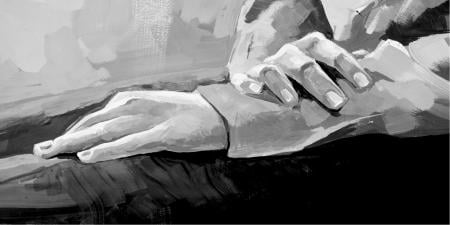A. Convincing his colleagues that providing voluntary medical services to needy populations is the preferable option according to Opinion 9.065, "Caring for the Poor" which states that "each physician has an obligation to share in providing care to the indigent"…and that "caring for the poor should be a regular part of the physician's practice schedule." So while Dr. Mills is correct about the physician's obligation, the Code does not specifically address how the obligation should be met.
B. Volunteering at a clinic without disrupting the care to his regular patients an acceptable option for Dr. Mills. The Code speaks to physicians' obligations to provide care to the poor, but it does not specifically mandate how this should be done. A few suggestions include: "Physicians can also volunteer their services at weekend clinics for the poor and at shelters for battered women or the homeless." The one caveat that is offered by the Code is that in fulfilling their obligation to the poor, physicians need not put their existing patients at risk. As Opinion 10.05, "Potential Patients" states: "…physicians have an obligation to share in providing charity care but not to the degree that would seriously compromise the care provided to existing patients."
C. Deciding to work solely in an institution that serves the uninsured and underserved is an acceptable action for physicians who believe strongly that these populations deserve equal access to health care. Principle VI of the Principles of Medical Ethics states: "A physician shall…except in emergencies, be free to choose whom to serve,…and the environment in which to provide medical care." Principle IX further states that: "A physician shall support access to medical care for all people." If Dr. Mills wishes to pursue this course, however, he must make sure that his current patients do not suffer because of his decision.
D. Discontinuing his volunteer work and placing the responsibility on others should be avoided. Principle IX of the Code and Opinion 9.065 view these activities as ongoing expectations of the profession, not time-limited obligations. In addition, if Dr. Mills discontinues his volunteer work, there could be a void in the continuity of services for some patients at the clinic, especially if other physicians took his place.



